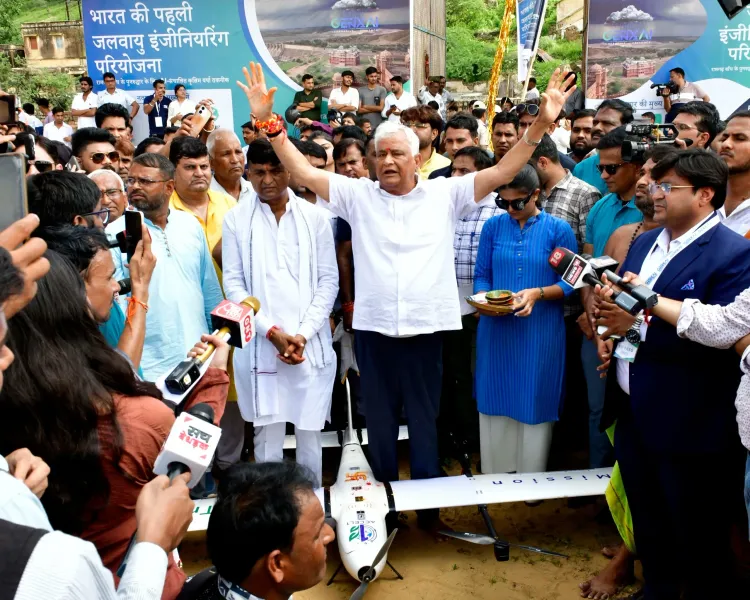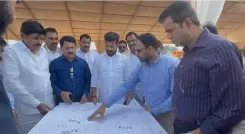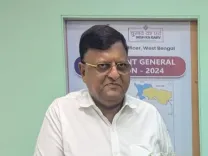Is India’s First Drone-Based Cloud Seeding a Game Changer in Rajasthan?

Synopsis
Key Takeaways
- First drone-based cloud seeding initiative in India.
- Utilizes AI technology for optimal cloud identification.
- Aims to combat severe water scarcity in Rajasthan.
- Potential to enhance agricultural productivity and ecosystem health.
- Safety measures include crowd control and GPS signal protection.
Jaipur, Aug 12 (NationPress) The State Agriculture Minister Kirodi Lal Meena officially inaugurated a groundbreaking cloud seeding trial in the Jamwaramgarh Dam region aimed at rejuvenating Ramgarh Lake and addressing the pressing water scarcity in the area.
This initiative, which employs AI-driven drone technology, represents India’s inaugural venture into drone-assisted cloud seeding.
A significant audience gathered to observe the demonstration of artificial rainfall, showcasing the integration of science, cutting-edge technology, and artificial intelligence. The unexpected influx of spectators resulted in network issues, prompting the drone to revert to auto-landing.
Officials indicated that for the next operation, measures for crowd control and multi-network jamming will be implemented to avert any loss of GPS signals.
This project, spearheaded by a team of scientists from Jaipur, will unfold as a 60-day pilot program utilizing the AI platform ‘Hydro Trace’. This technology determines the most suitable clouds for seeding by analyzing real-time data, satellite images, and sensor readings.
The drones will dispense safe agents like sodium chloride into selected clouds, promoting the coalescence of moisture particles into raindrops.
Meena emphasized that the immediate objective of the mission is to induce rainfall, while the long-term benefits encompass elevating lake water levels, replenishing groundwater, enhancing agricultural yields, and restoring the ecosystem.
“This technology is safe, aligns with international standards, and utilizes agents in minimal quantities that pose no harm to humans, wildlife, or crops,” he asserted.
“If successful, this approach could be replicated in other drought-affected areas across the state and nation.”
In conjunction with the project, environmental impact assessments will be carried out. The minister expressed optimism that this initiative would yield sustainable water solutions for farmers and significantly mitigate the impact of drought in the region.









